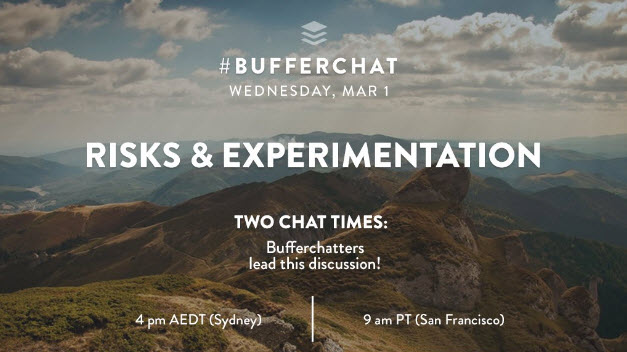
My recap of the 11/12017 #Bufferchat hosted by @buffer. Join the conversation every Wednesday at 12pm EST. Culture is the backbone of your company; are your employees engaged or are you pushing them out the door?
Q1: What are the benefits of building a positive work culture?
- A positive work culture leads to happy and motivated employees
- Positive work culture drive employee longevity
- Positive and motivated employees pass that great attitude on to their customers
Q2: What is one of the first steps you would take to implement more positivity?
- Positivity and great culture starts from the top – Management must live it lead by example
- Meet regularly with your team
- Create a culture that manages people over spreadsheets
- Along with team communication, don’t let individuals live on islands: let them know how they are contributing
- Just like passing on employees who don’t get it done, remove toxic managers
Q3: Do you think positive work cultures are more productive? Why or why not?
- Positive cultures are the MOST productive: they WANT to come to work and contribute to company goals
- When you know the impact you have on company goals, you are more willing to participate
- A culture of fear destroys productivity and increases turnover
Q4: What can you do to promote or model positive and honest communication?
- Don’t hide in your office – walk the floor and talk to people
- Smile to others
- Say Thank you
- Don’t get defensive when criticized
Q5: How do you prevent “false harmony” when developing this kind of culture?
- “False harmony” is spotted right away – employees know it when they see it
- Don’t say you are pro-customer, then create policies that annoy them
- Just like “Your call is important to us” employees can see when mgmt is not being honest
- If you LIVE the culture / behavior you want, your team will too
- Numbers are easy to manage, people are much harder – train people HOW to manage others
- ASK your employees what environment / culture they seek – report back to them and implement what makes sense
Q6: Are there goals or intentions you can set around positive work culture?
- Improved employee retention rate
- Net promoter score improvement with customers
Thanks for reading – hope to see you at the next #bufferchat and look forward to your comments and questions.
Cheers,
Toby





